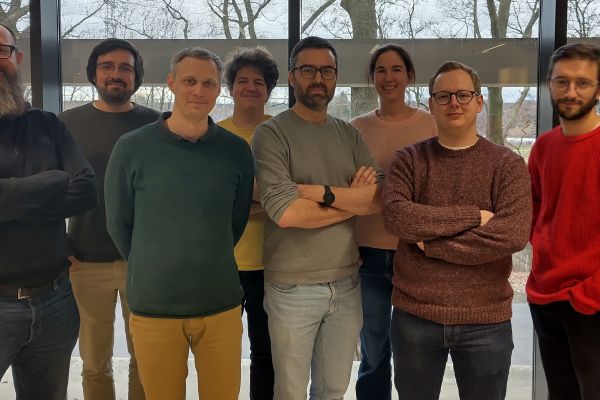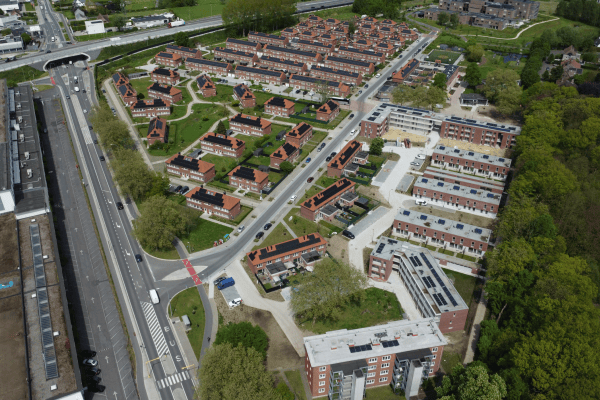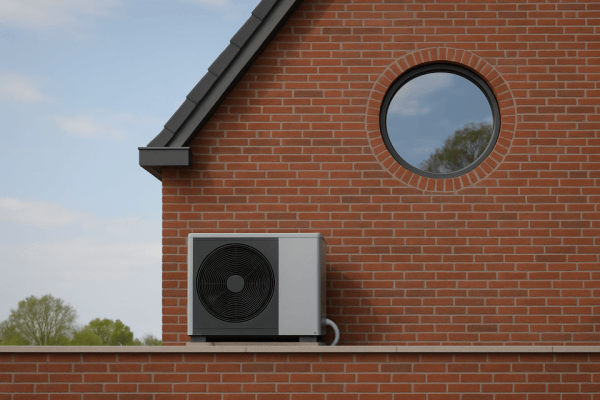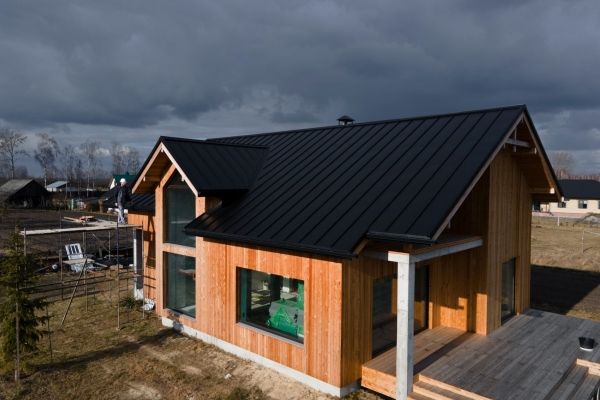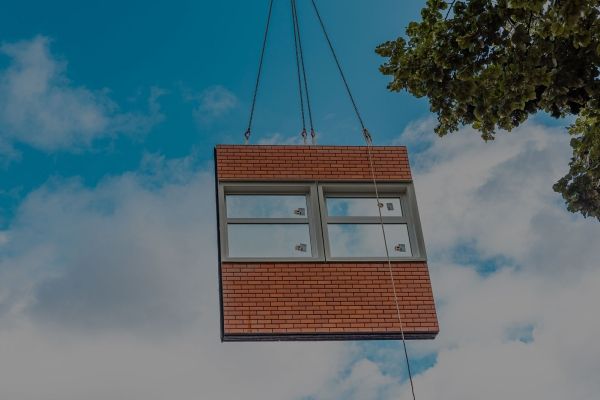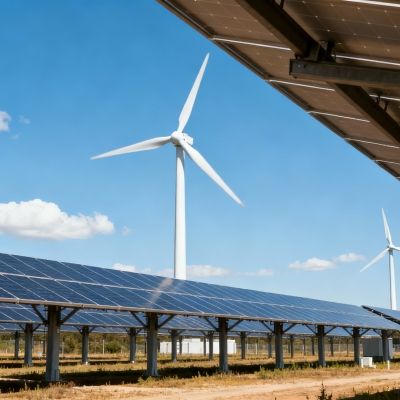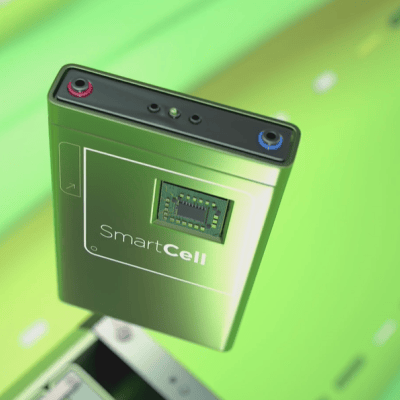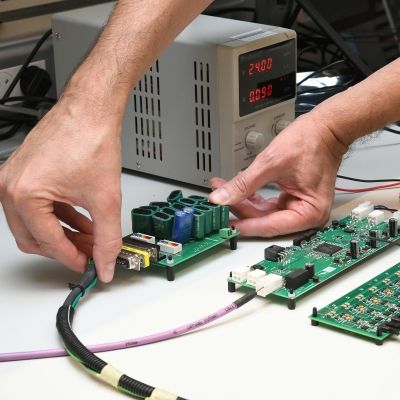Circular business models can reduce financial barriers to installing PV systems
Solar energy is a renewable energy source that plays a significant role in decarbonizing our energy mix. While the installation of PV systems has greatly increased over the past decade, many households face substantial financial, technical, or legal hurdles when considering investing in solar energy. As part of the CIRCUSOL project, VITO investigated whether circular business models could help lower these barriers.
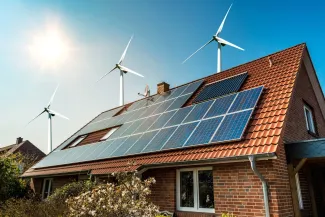
The CIRCUSOL project takes a circular approach to the entire value chain of PV and battery systems and all the societal and environmental challenges they encounter:
- How can we design PV and battery technology to facilitate reuse and recycling?
- What should we do with discarded panels and batteries? Can they be reused, and if so, what are the key conditions for enabling reuse?
- How can circular strategies be employed to accelerate the widespread adoption of PV and battery systems in society?
VITO researchers Wim Van Opstal and Anse Smeets specifically examined the last challenge for residential PV installations. Using a large-scale survey of 3996 Flemish residents, they investigated whether circular business models could lower the barriers to residential PV adoption.
The results suggest that initial costs, a lack of trust in governments, the risk of rapid technological obsolescence, and a perceived lack of financial return are the main barriers to residential investments in PV installations. Circular business models, including product-service systems (PSS) and PV reuse, appear to reduce the primary financial barrier.
Potential for solar energy as a service and PV reuse
Product-service systems allow customers to benefit from solar energy without having to purchase a PV installation themselves, essentially offering solar energy as a service. At the same time, PV service providers are incentivized to optimize the lifespan of products.
PSS models can also enable PV reuse. Customers do not need to worry about purchasing, maintaining, or repairing PV panels when their homes are equipped with reused PV panels by a service provider. PV systems eligible for reuse typically consist of still-functioning and relatively recent PV modules that have been retired due to the replacement with more powerful systems, early defects in the broader system, insurance claims after a storm, etc.
Both PSS models for solar energy and PV reuse offer strong economic and environmental value propositions that appear most attractive to female customers and residents living in older homes with flat roofs. This is partly because the aesthetic impact of a reuse installation with potentially heterogeneous PV panels is less pronounced on flat-roofed houses. PV reuse is particularly interesting to customer segments with the following characteristics: young, highly educated, with a migration background, and less risk-averse.
The importance of trust
Another important finding is that trust in both service providers and technology can be considered a necessary condition for PSS for solar energy and PV reuse.
The results also suggest a complex relationship between trust in governments and the adoption of PV. Firstly, trust in governments is higher among households that have not invested in a PV installation. This could reflect trust in government policies that may result in a sufficient and reliable supply of affordable energy, thereby inhibiting the feeling that one must invest in solar energy to be independent and self-sufficient. On the other hand, energy policy reforms in the past decade have led to a decrease in government trust among homeowners who invested in a PV installation. A lack of trust in the government also appears to be associated with a lack of interest in PV reuse.
The role of governments
Since circular business models can lower the financial barrier for households that have not yet invested in a PV installation, it is important for governments to address this across various policy domains. It provides governments with a tool to address energy inequality, climate challenges, and sustainability in a targeted manner. Circular business models for solar energy have positive environmental, financial, and social impacts.
In addition to supporting circular business models, the research suggests that it is important for governments to regain trust by developing a credible energy policy that complements various policy levels and domains and provides legal certainty for households to invest in renewable energy solutions.
Governments can also help share experiences of households using PSS models for solar energy. The research indicates that a lack of experiences from peers is a significant barrier to the adoption of PSS in solar energy. Demonstrating the circular aspects of well-known PSS models, such as Netflix, can help change beliefs and preferences regarding ownership and access to sustainable renewable energy.
Want to know more?
The full research report appeared in the journal 'Energy Policy' under the title “When do circular business models resolve barriers to residential solar PV adoption? Evidence from survey data in Flanders”.
Previously, VITO also examined the importance of circular business models for solar panels for businesses, governments, schools, healthcare institutions, and social housing. The results of this research can be found here:
- Van Opstal, W & Smeets, A. (2023), Circular Economy Strategies as Enablers for Solar PV Adoption in Organizational Market Segments. Sustainable Production and Consumption 35: 40-54. https://doi.org/10.1016/j.spc.2022.10.019
- Van Opstal, W & Smeets, A. (2022), Market-Specific Barriers and Enablers for Organizational Investments in Solar PV—Lessons from Flanders. Sustainability 14(20):13069. https://doi.org/10.3390/su142013069





